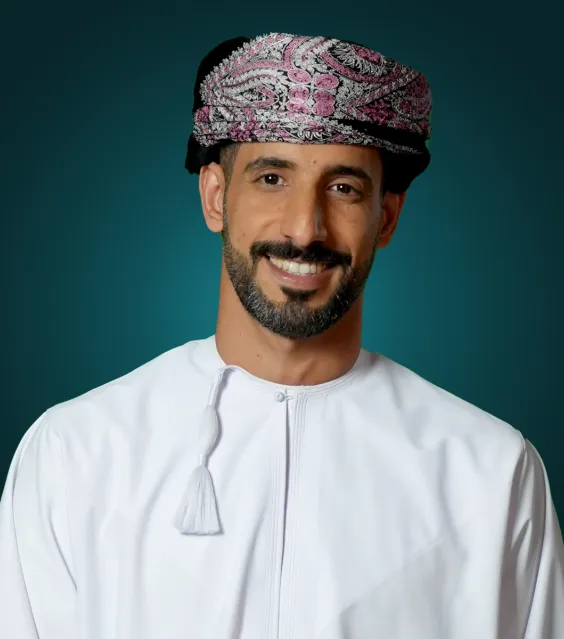Season 17 Innovators
Back to innovators
Mohammad Al Mur Al Salmi

About Mohammad
For Mohammad Al Mur Al Salmi, the sea has always been more than just a place—it’s a way of life. Raised in Oman, where the coastline stretches for thousands of KM and the ocean anchors both culture and economy, he developed a deep appreciation for marine environments and a lifelong desire to protect them.
“I’ve always loved being near the sea,” he says. “In Oman, it’s part of who we are—economically, culturally, and spiritually.”
That sense of belonging shaped his journey. Al Salmi pursued his bachelor’s degree in biotechnology at Sultan Qaboos University, then continued there to earn a master’s degree in marine science and fisheries. His focus sharpened in 2017, when he began his final-year project on local algae. Since then, he has built rare expertise in algae research and its commercial potential—becoming one of the few specialists in the field in Oman.
For nearly a decade, Al Salmi has researched marine pollution—driven by a commitment to transform academic insight into meaningful action. “People used to say I spent too much time in the lab with nothing to show for it,” he recalls. “But that only pushed me harder. I wanted to prove that science could be practical.”
Now, with Stars of Science as his platform, he’s doing exactly that.
About the Project
Biofouling is a global problem—caused by the buildup of microorganisms like bacteria and algae on underwater surfaces such as ship hulls, aquaculture systems, desalination plants, and marine sensors. It increases drag on ships, reduces energy efficiency, clogs essential systems, and accelerates corrosion—all while contributing to greenhouse gas emissions.
Traditional antifouling methods rely on industrial chemical coatings that leach toxic substances into the sea. Al Salmi’s solution is different: a biodegradable, enzyme-based hydrogel spray derived from marine bacteria—safe for marine life, effective against fouling, and scalable for industrial use.
“Chemical coatings work, but they pollute the water,” he explains. “My solution is biodegradable, safe, and scalable.”
Originally developed during his master’s research, the hydrogel has applications not just in shipping, but in any marine infrastructure exposed to biofouling—offering a vital tool to support clean operations in coastal industries.
The Impact
As the global marine sector seeks greener technologies, Al Salmi’s innovation arrives at a critical time. Oman’s maritime economy depends on clean water, healthy marine life, and efficient shipping. His spray offers a targeted solution to protect these assets without harming the ecosystems they rely on.
“This is a solution that fits our region,” he says. “It’s rooted in our relationship with the sea, and it’s built for sustainability.”
Looking ahead and beyond the show, Al Salmi will be working on a research and development center in Oman—one that empowers future environmental innovators with both the tools and support to bring their ideas to life. His vision extends beyond marine science to a broader movement for sustainable innovation.
His advice to fellow Arab innovators is simple: “Keep going. Whether you win or not, every experience teaches you something. Stay curious—and keep building.”
